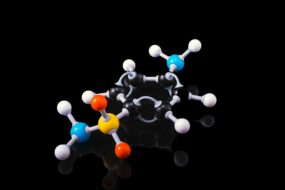Mefloquine is a quinoline antimalarial drug. It is an intrinsically fast-acting erythrocytic schizontocide but slower than chloroquine or quinine. This is due to prolonged absorption after oral ingestion.
It is effective against chloroquine-sensitive and resistant plasmodia.
Indication.
- Prevention and treatment of malaria that is resistant to other drugs.
Mechanism of action.
- Inhibits heme polymerase activity resulting in accumulation of free heme, which is toxic to the parasites.
Adverse effects
- Dizziness, nausea, vomiting, anorexia, diarrhoea and abdominal pain
- Sinus bradycardia and Q-T prolongation.
- Neuropsychiatric reactions include; a disturbed sense of balance, ataxia, strange dreams, anxiety, hallucinations and convulsions.
- Hematological, hepatic and cutaneous toxicity.
Contraindications.
- Patients with anxiety, depression, psychosis, and cardiac conduction defects.
- Impaired hepatic and renal functions.
- Children with a body mass of less than 5 kg.
- Pregnancy and lactation.
Drug interactions.
- Halofantrine, quinidine/quinine, or chloroquine is given to patients who have received the drug, causing QTc lengthening and cardiac arrests.
- These drugs should not be administered if mefloquine has been given less than 12 hours earlier.
Dosage.
- MEFQUE, CONFAB, FACITAL 250 mg tablet; to be taken with plenty of water after meals.












